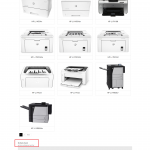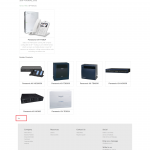Ce fil est résolu. Voici une description du problème et la solution proposée.
Problem: I would like to display a list of related posts on a taxonomy term archive. Related posts should be posts with terms that are siblings of the current archive term.
Solution:
- Create a View of these posts filtered by the same taxonomy, where the taxonomy term slug is set by one shortcode attribute.
- Use a custom shortcode to get the parent term slug based on the current archive term slug.
function get_term_parent_func($atts) {
$a = shortcode_atts( array(
'taxonomy' => '',
'return' => 'id'
), $atts );
$taxonomy = $a['taxonomy'];
$parent_id = 0;
if( is_tax( $taxonomy ) ) {
$taxObj = get_queried_object();
$tax = isset($taxObj->taxonomy) ? $taxObj->taxonomy : 0;
$term = isset($taxObj->term_id) ? $taxObj->term_id : 0;
$parent_slugs = get_term_parents_list( $term, $tax, array('format'=>'slug', 'link'=>FALSE, 'inclusive'=>FALSE, 'separator'=>','));
$parent_slugs = explode(',', $parent_slugs);
$depth = sizeof($parent_slugs) - 1;
$parent_slug = ($depth === 0) ? $taxObj->slug : $parent_slugs[$depth-1];
if( $a['return'] == 'id' ) {
$parent = get_term_by( 'slug', $parent_slug, $tax );
$parent_id = isset($parent->term_id) ? $parent->term_id : $taxObj->term_id;
return $parent_id;
}
if( $a['return'] == 'slug' ) {
return $parent_slug;
}
}
return $parent_id;
}
add_shortcode("get_term_parent", "get_term_parent_func");
- Pass that value into your View of posts as a shortcode attribute:
[wpv-view name="products-in-parent-term" wpvproductcat="[get_term_parent taxonomy='product_cat' return='slug']"]
- Register the get_term_parent shortcode in Toolset > Settings > Third party shortcode arguments
- Apply a custom filter using PHP that will filter out all the posts in the current term archive, to prevent duplicates.
add_filter( 'wpv_filter_query', 'not_this_term_filter',99,3 );
function not_this_term_filter( $query_args, $views_settings, $view_id) {
$view_ids = array( 1234 );
$tax = 'product-categories';
$taxObj = get_queried_object();
$tax = isset($taxObj->taxonomy) ? $taxObj->taxonomy : 0;
$term_id = isset($taxObj->term_id) ? $taxObj->term_id : 0;
if (in_array($view_id, $view_ids)){
$query_args['tax_query'][] = array(
'taxonomy' => $tax,
'field' => 'id',
'terms' => $term_id,
'operator' => 'NOT IN'
);
}
return $query_args;
}
Relevant Documentation:
https://toolset.com/documentation/user-guides/passing-arguments-to-views/
https://toolset.com/documentation/programmer-reference/views-filters/#wpv_filter_query
This is the technical support forum for Toolset - a suite of plugins for developing WordPress sites without writing PHP.
Everyone can read this forum, but only Toolset clients can post in it. Toolset support works 6 days per week, 19 hours per day.
No supporters are available to work today on Toolset forum. Feel free to create tickets and we will handle it as soon as we are online. Thank you for your understanding.
This topic is split from https://toolset.com/fr/forums/topic/how-to-create-different-taxonomy-archive-page-for-parent-child-taxonomy-terms/
| Sun | Mon | Tue | Wed | Thu | Fri | Sat |
|---|---|---|---|---|---|---|
| 8:00 – 12:00 | 8:00 – 12:00 | 8:00 – 12:00 | 8:00 – 12:00 | 8:00 – 12:00 | - | - |
| 13:00 – 17:00 | 13:00 – 17:00 | 13:00 – 17:00 | 13:00 – 17:00 | 13:00 – 17:00 | - | - |
Supporter timezone: America/New_York (GMT-04:00)
This topic contains 8 réponses, has 2 voix.
Last updated by Tcoffee Il y a 5 années et 9 mois.
Assisted by: Christian Cox.


